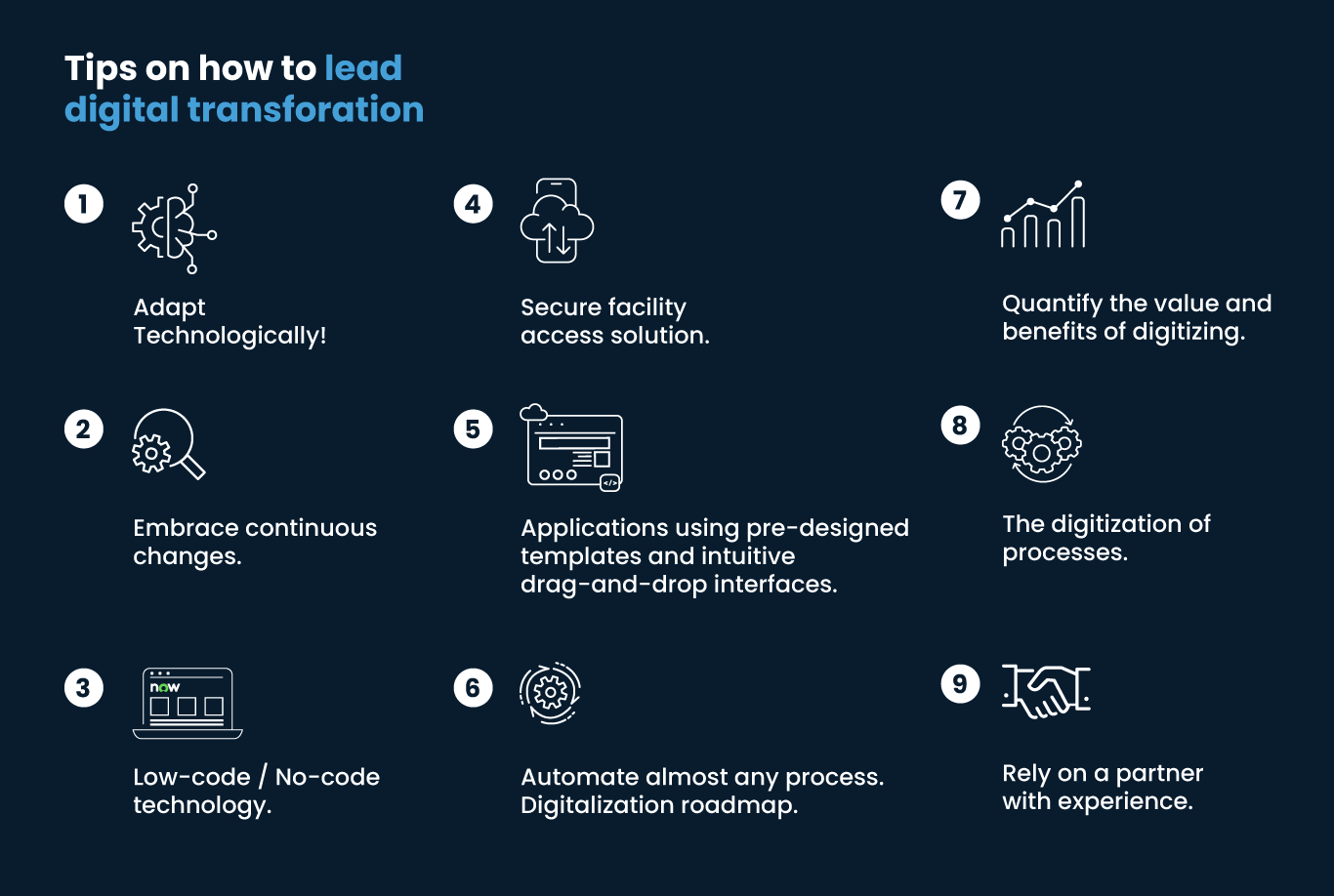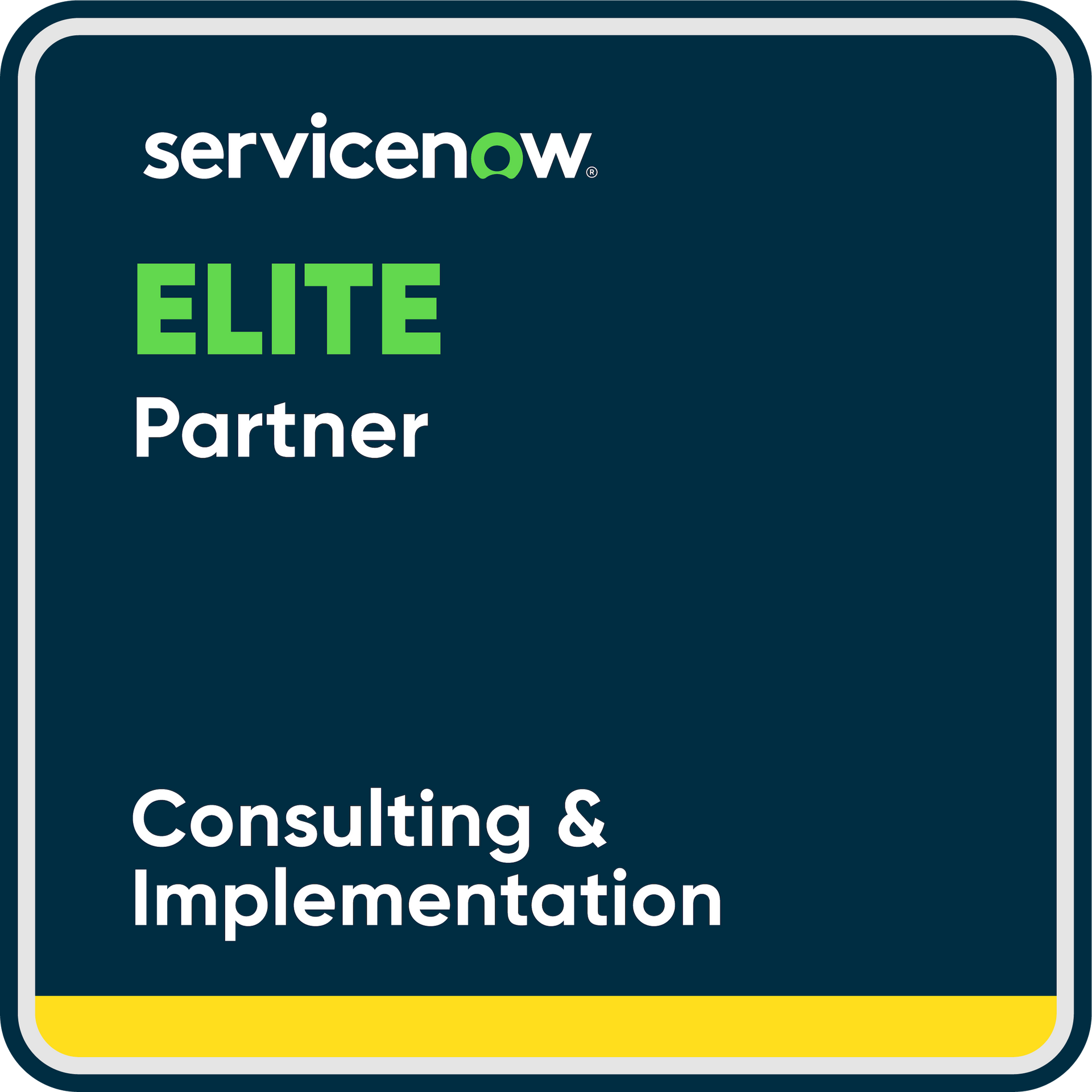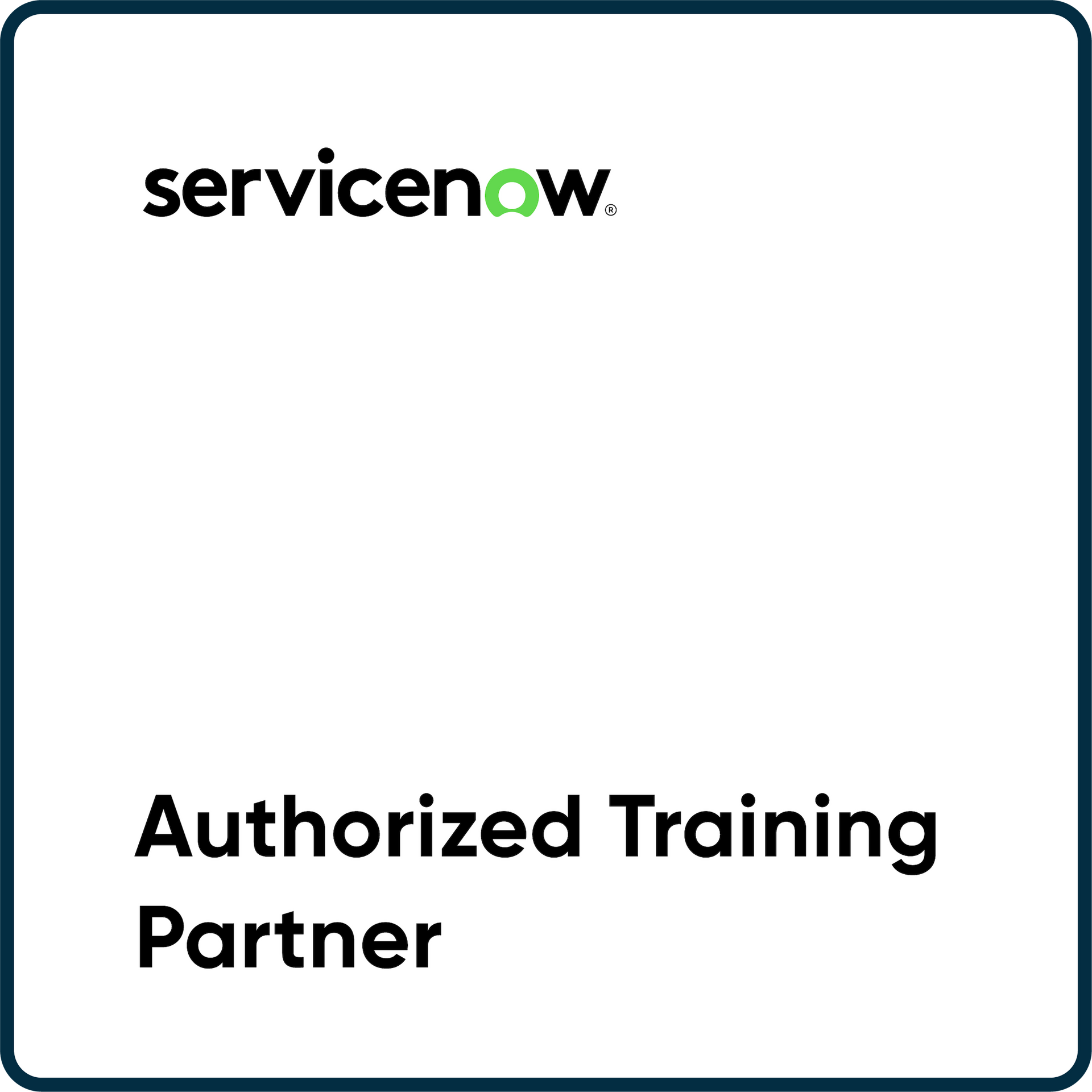Leading Transformation with Low Code Capabilities
Technology is advancing at an ever faster pace, and all companies face the great challenge of adapting technologically to the new times or gradually disappearing. The technological race is like a long-distance race; the most successful companies are the ones that adapt faster to continuous changes, both technological and of any kind: political, social, market, etc.
A simple, high-impact, and still persistent example is the Covid-19 pandemic. It was a global health phenomenon that impacted all companies and governments worldwide, propelling the establishment of new laws and protocols to safeguard the health of citizens.
In these situations, companies that lead the digital transformation manage to solve the problems before relying on technological solutions that are pioneers in innovation. And when it comes to management platforms, the company that leads the market is ServiceNow, thanks to its Low-code / No-code technology.
Thanks to this innovative technology and the other technological capabilities of ServiceNow's Creator Workflows area, At Volteo Digital, we implemented a secure facility access solution for a client just a month and a half after the pandemic outbreak. Before suggesting how to lead the digital transformation with Low-code technology, let's talk about what Low-code technology is.

Low-code / No-code technology
Low-code / No-code was born as a technological evolution to cover a significant problem in the business world. For years, there has been a great demand for IT professionals and a shortage of qualified candidates.
In a study conducted by Codin Game in 2021, 61% of companies said that hiring developers' most crucial challenge was finding qualified candidates.
And how does low-code technology help in this scenario? Quite simply, it allows any employee with no programming knowledge or experience to develop applications using pre-designed templates and intuitive drag-and-drop interfaces.
How to implement it?
First, we must identify the so-called citizen programmers, a term used to refer to the employees who can help us design these applications.
Ideally, anyone can configure applications with Low-code technology, but that does not mean all your company's employees should start designing applications. The best candidates are people who like technology, are familiar with spreadsheets, and are interested in creating new tools.
Nonetheless, identifying the workforce is just the beginning; we are talking about employees without configuration experience; thus, governance is key to the success of projects. Furthermore, to ensure success, we need to train our citizen coders properly, including providing that they have the necessary technical and procedural security measures in place so that the IT department does not ignore them.
To avoid the previous assertion, we must foster a positive culture and atmosphere for cooperation between developers and citizen coders. We already have the workforce, governance, and technology that will allow us to automate almost any process; The next step is to determine which processes and workflows in our business are key and then create a digitalization roadmap.
Developing with the business in mind
The fact that we are already enabled to digitize and optimize any workflow thanks to low-code technology does not mean we have to configure applications for all our processes.
We must engage in consultancies to determine which critical business procedures are necessary and verify if the effort to be spent is worthwhile given the expected outcomes. We must bear in mind that, although low-code technology considerably reduces application development times, the results obtained do not always justify the hours invested. It is probably not worth starting the process if we do not know how to quantify the value and benefits of digitizing a workflow.
Automation must be designed with business processes in mind, starting with the most critical strategies for the company and those that provide immediate value. For example, a process that impacts a small number of employees and is not executed with a particular frequency should not be digitized.
Technology at the service of people
As we have already mentioned, low-code technology will help us to digitize a more significant number of processes in less time. Still, this new capability should not make us lose the focus of digitization: putting technology at the service of people and not the other way around.
The digitization of processes should help us to streamline workflows, achieving the lowest number of human interactions in the process. Regardless, suppose there is already a process in the company that does not use any technology, and its digitization will mean that employees will have to perform more actions than they currently do, making the process more tedious. In that case, it does not make sense to digitize that process.
Rely on a technology leader
For an organization to succeed in the digitization process, it is essential to rely on a partner with experience in digitizing operations and who is also committed to technological innovation.
Digital transformation is a constant process in companies. As technology innovates, it will be possible to automate many processes, so we must rely on a company with experience. That will also provide us with differential value and be able to become the pioneers of the sector concerning new technologies.
An example of this technological evolution is IoT and Edge technology. These breakthroughs have been around for years, but they're just starting in the business now. More and more companies will bet on this technology in the coming years as it allows automating processes from start to finish without any human interaction.
Partnering and delivering ongoing value
At Volteo Digital, we have developed an Edge technology that will allow companies to automate 100% various workflows. And to provide this technology, we rely on two leaders in the technology sector, ServiceNow and Intel, and move forward together in the new era of digitization.
If you want to learn more about these initiatives and how can we help you on your digital transformation road, contact us!
ABOUT THE AUTHOR
Ivan Antona
Iván has strong capacities to carry out the consultative sales model that clients have been demanding for years.
As Iberia country manager, Iván is responsible for the P&L and the sales and service delivery teams. He
always combined his activity with consulting on his own, addressing projects in different sectors such as tourism, energy, pharma and education.
Ivan is based in Madrid, Spain, with a strong academic background as ITIL Expert, MBA and Computer Engineer. View full bio
Insights from Volteo Digital









